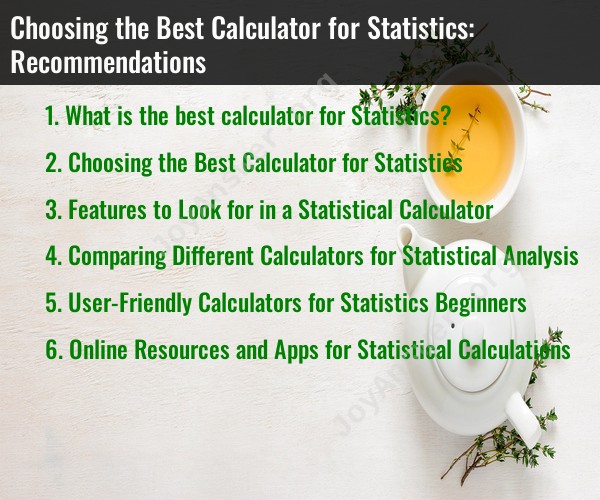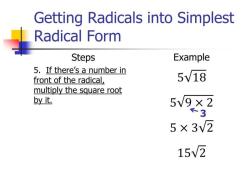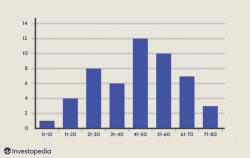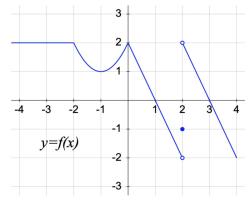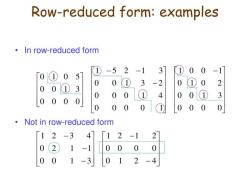What is the best calculator for Statistics?
Choosing the best calculator for statistics depends on your specific needs, your level of expertise, and your budget. Here are some recommendations for different types of statistics calculators:
Graphing Calculators (Advanced Statistics):
TI-84 Plus Series: Texas Instruments (TI) calculators like the TI-84 Plus CE are popular choices for high school and college-level statistics. They offer advanced statistical functions, graphing capabilities, and a large user base for support.
Casio fx-CG50: Casio's graphing calculators, like the fx-CG50, are also capable of performing advanced statistical calculations and graphing.
Scientific Calculators (Basic Statistics):
TI-36X Pro: This is a powerful scientific calculator from Texas Instruments that offers advanced statistics functions, making it suitable for most college-level statistics courses.
Casio fx-115ES Plus: Casio's fx-115ES Plus is another capable scientific calculator with a wide range of statistical functions.
Specialized Statistics Calculators:
HP Prime Graphing Calculator: The HP Prime is a graphing calculator that's also suitable for statistics. It's known for its ease of use and versatility.
TI-Nspire CX CAS: This is a more advanced calculator from Texas Instruments that can handle a wide range of math and science subjects, including statistics.
Online Statistical Calculators: If you have access to the internet, you can use online statistical calculators and software. These can be more powerful and flexible than dedicated hardware calculators. Examples include websites like Wolfram Alpha and software like Microsoft Excel, R, or Python with libraries like NumPy and SciPy.
Smartphone Apps: There are many apps available for smartphones that can perform statistical calculations. Popular choices include Graphing Calculator by Mathlab (Android/iOS) and MyScript Calculator (Android/iOS).
Statistical Software: For serious statistical work, you may want to consider dedicated statistical software packages like R, SAS, SPSS, or Stata. While not calculators in the traditional sense, they provide extensive statistical capabilities and are widely used in research and data analysis.
When choosing a calculator, consider the following factors:
- Your course or work requirements: Ensure the calculator meets the requirements of your statistics class or job.
- Ease of use: Some calculators are more user-friendly than others.
- Cost: High-end graphing calculators can be expensive, so consider your budget.
- Learning curve: Some calculators have steeper learning curves, while others are more intuitive.
It's a good idea to consult with your instructor or colleagues to see if they have specific recommendations for your statistics needs. Ultimately, the best calculator for statistics will be the one that best suits your individual requirements and preferences.
Choosing the Best Calculator for Statistics
Choosing the right calculator for statistics can make a significant difference in your ability to understand and apply statistical concepts. With a wide range of options available, it's essential to consider your specific needs and the level of statistics you'll be studying. Here's a guide to help you make an informed decision:
Consider Your Level of Statistics: If you're a beginner, a basic scientific calculator with statistical functions may suffice. However, for more advanced courses or research, you'll need a graphing calculator with more powerful statistical capabilities.
Evaluate Key Features: Essential features for a statistical calculator include:
- Hypothesis testing
- Regression analysis
- Confidence intervals
- Probability distributions
- Data manipulation and analysis tools
Ease of Use: Choose a calculator with a user-friendly interface, clear menus, and easy-to-read display. Familiarity with the calculator's layout will save you time and effort.
Brand Reputation: Opt for calculators from reputable brands like Texas Instruments, Casio, or Hewlett-Packard. These brands offer reliable products with extensive support resources.
Budget: Calculators range in price from affordable options to high-end models. Determine your budget and prioritize features that align with your needs.
Features to Look for in a Statistical Calculator
When comparing statistical calculators, consider these essential features:
Hypothesis Testing: This feature allows you to test statistical hypotheses using various methods, such as z-tests, t-tests, and ANOVA.
Regression Analysis: Perform regression analysis to determine the relationship between variables and develop predictive models.
Confidence Intervals: Calculate confidence intervals to estimate population parameters with a specified degree of certainty.
Probability Distributions: Access common probability distributions, such as normal, binomial, and Poisson distributions, to calculate probabilities and analyze data.
Data Manipulation and Analysis Tools: These tools include data input and editing capabilities, descriptive statistics, and data sorting and filtering functions.
Comparing Different Calculators for Statistical Analysis
Here's a comparison of popular statistical calculators:
Texas Instruments TI-83 Plus: A widely used option for high school and college statistics, offering a balance of features and affordability.
Texas Instruments TI-84 Plus: A more advanced model with enhanced graphing capabilities and additional statistical functions.
HP Prime: A high-end calculator with a color touchscreen, symbolic manipulation capabilities, and advanced statistical features.
Casio fx-9750GII: A versatile calculator with a large memory, extensive statistical functions, and support for multiple languages.
User-Friendly Calculators for Statistics Beginners
For those new to statistics, user-friendly calculators can make a big difference in the learning process:
Texas Instruments TI-36X Pro: A basic scientific calculator with essential statistical functions, ideal for introductory statistics courses.
Casio FX-991EX: A user-friendly scientific calculator with a clear display and comprehensive statistical functions.
Sharp EL-W516XBSL: A feature-rich calculator with a large display, easy-to-navigate menus, and a variety of statistical functions.
Online Resources and Apps for Statistical Calculations
In addition to physical calculators, various online resources and apps can aid in statistical analysis:
Desmos: A free online graphing calculator with statistical functions, regression analysis, and data plotting capabilities.
GeoGebra: Another free online graphing calculator with statistical tools, including hypothesis testing, confidence intervals, and probability distributions.
R and Python: These programming languages offer powerful statistical packages and libraries for advanced data analysis and modeling.
By considering your needs, evaluating features, and choosing a user-friendly calculator, you can find the best tool to support your statistical learning and analysis.
